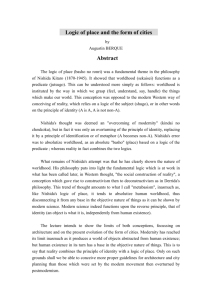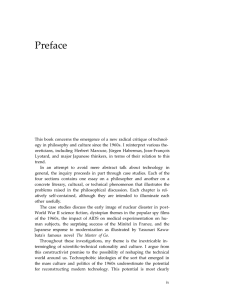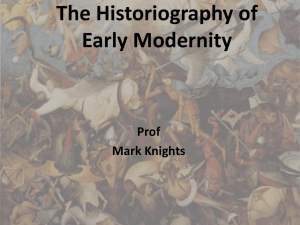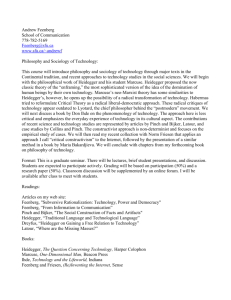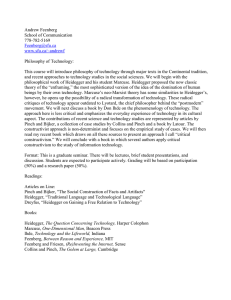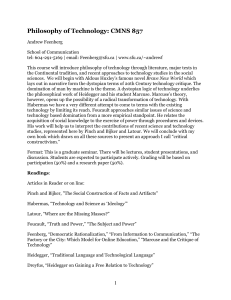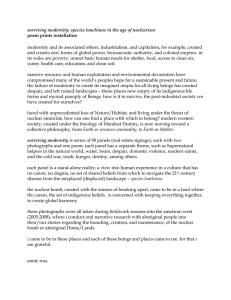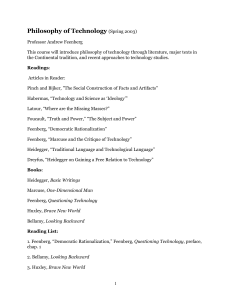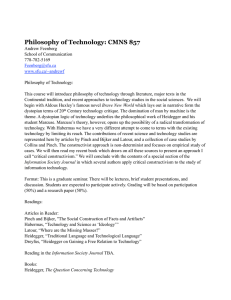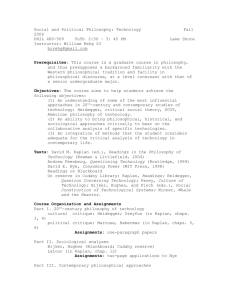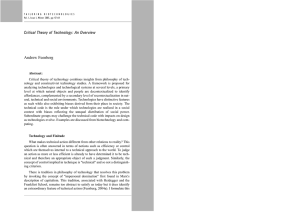Alternative Modernity CMNS 858-5
advertisement
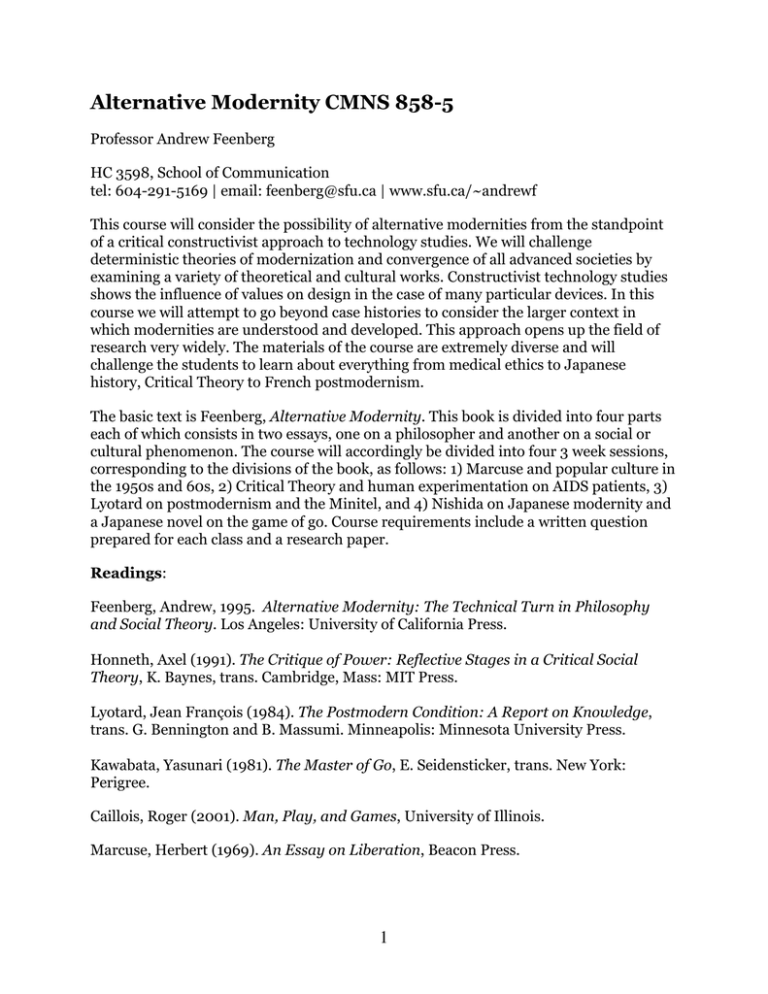
Alternative Modernity CMNS 858-5 Professor Andrew Feenberg HC 3598, School of Communication tel: 604-291-5169 | email: feenberg@sfu.ca | www.sfu.ca/~andrewf This course will consider the possibility of alternative modernities from the standpoint of a critical constructivist approach to technology studies. We will challenge deterministic theories of modernization and convergence of all advanced societies by examining a variety of theoretical and cultural works. Constructivist technology studies shows the influence of values on design in the case of many particular devices. In this course we will attempt to go beyond case histories to consider the larger context in which modernities are understood and developed. This approach opens up the field of research very widely. The materials of the course are extremely diverse and will challenge the students to learn about everything from medical ethics to Japanese history, Critical Theory to French postmodernism. The basic text is Feenberg, Alternative Modernity. This book is divided into four parts each of which consists in two essays, one on a philosopher and another on a social or cultural phenomenon. The course will accordingly be divided into four 3 week sessions, corresponding to the divisions of the book, as follows: 1) Marcuse and popular culture in the 1950s and 60s, 2) Critical Theory and human experimentation on AIDS patients, 3) Lyotard on postmodernism and the Minitel, and 4) Nishida on Japanese modernity and a Japanese novel on the game of go. Course requirements include a written question prepared for each class and a research paper. Readings: Feenberg, Andrew, 1995. Alternative Modernity: The Technical Turn in Philosophy and Social Theory. Los Angeles: University of California Press. Honneth, Axel (1991). The Critique of Power: Reflective Stages in a Critical Social Theory, K. Baynes, trans. Cambridge, Mass: MIT Press. Lyotard, Jean François (1984). The Postmodern Condition: A Report on Knowledge, trans. G. Bennington and B. Massumi. Minneapolis: Minnesota University Press. Kawabata, Yasunari (1981). The Master of Go, E. Seidensticker, trans. New York: Perigree. Caillois, Roger (2001). Man, Play, and Games, University of Illinois. Marcuse, Herbert (1969). An Essay on Liberation, Beacon Press. 1 Nishida, Kitaro (1993). Last Writings: Nothingness and the Religious Worldview. Univ. of Hawaii. Berman, Marshall (1988). All That Is Solid Melts Into Air, Penguin. A Course Reader will be available. If the reader is not ready for the early assignments, texts will be made available on my web page. In the assignment list below, items that do not correspond to the book list will be found in the Course Reader. Week by week assignments follow: Part One: Dystopian Enlightenment Week 1. Alternative Modernity (AM), chaps. 1,2,3 Week 2. Marcuse, An Essay on Liberation, “The Individual in the Great Society” Week 3. “The Franck Report” (start on Honneth, The Critique of Power for next section) Part Two: Technique and Value Week 4. AM, chaps. 4,5, “Democratic Rationalization,” Honneth, The Critique of Power Week 5. Honneth, The Critique of Power, “Technology and Science as Ideology” (on web page) Week 6. “The Nuremburg Code,” “Judgement on Willowbrook,” “Democratic Science?”, “How to Have Theory in an Epidemic,” "Philosophical Reflections on Experimenting with Human Subjects." Part Three: Postmodern Technology Week 7. AM, chaps. 6,7, Berman, All That Is Solid Melts Into Air Week 8. Lyotard, The Postmodern Condition Week 9. “Touch Someone,” “The Dynamics of System Development” Part Four: AM, chaps. 8,9,10 Week 10. “The Nishida Enigma,” “Visible Discourses: Invisible Ideologies,” “Technology in a Global World,” “Nishida Kitaro, The Problem of Japanese Culture,” Week 11. Nishida, Last Writings, Kawabata, The Master of Go Week 12. Caillois, Man, Play, and Games 2
